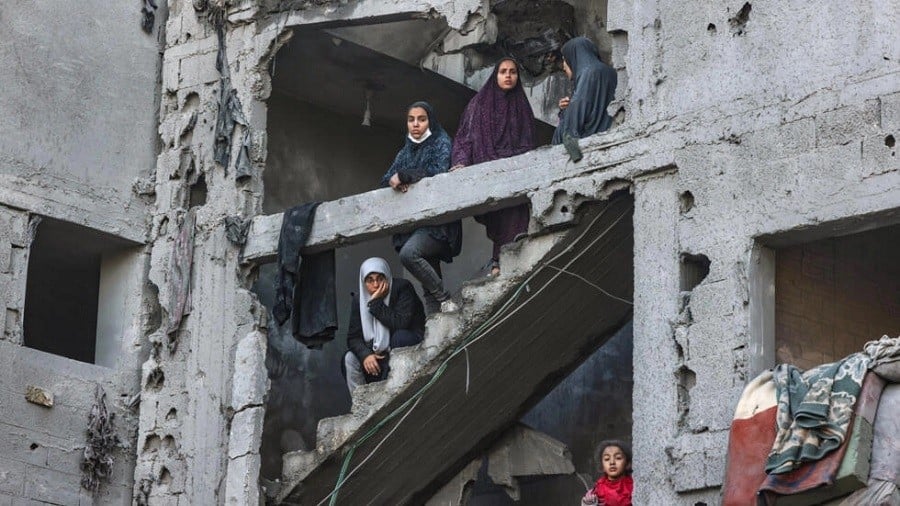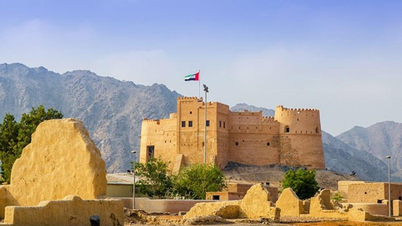Faced with an alarming humanitarian crisis, the international community is looking to Israel and Hamas for a ceasefire. However, with Israel hatching plans for a new offensive in Rafah and its hardline stance to “destroy Hamas,” the prospects for a peaceful solution remain remote.
 |
| Israel plans to attack Rafah, the last refuge for the 'miserable' people in the Gaza Strip. (Source: AFP) |
Egyptian officials say ceasefire talks in the Israel-Hamas conflict are expected to begin soon in Qatar as humanitarian efforts continue to race against time and the parties seek to persuade Israel to avoid provoking a “bloody disaster” in Rafah.
The talks will mark the first time Israeli officials and Hamas leaders have engaged in indirect talks since the start of the Muslim holy month of Ramadan. International mediators had hoped to reach a six-week ceasefire before the holy event began earlier last week, but both sides failed to materialize.
Rafah “black hole” and warnings
The latest flashpoint is Israel’s goal of pursuing Hamas to Rafah, a city in southern Gaza. On March 15, Prime Minister Netanyahu’s office said he had approved a military plan to attack Rafah, Gaza’s southernmost town, home to about 1.4 million Palestinians. Israel wants to target Hamas battalions stationed in the area. Many Palestinians fled to Rafah when Israel launched a retaliatory attack in the Gaza Strip.
Prime Minister Netanyahu’s office did not provide details or a timetable for the Rafah operation, but said the plan would include the evacuation of civilians. The United States and other countries have warned that a military assault on Rafah could be catastrophic.
German Chancellor Olaf Scholz recently expressed concern about the risk of an Israeli attack on Rafah, saying the risk was that the operation could “cause extremely bad civilian casualties”.
Washington has also become increasingly critical of Netanyahu’s handling of the conflict, with US Secretary of State Antony Blinken recently stressing the need for a “clear and actionable plan” to protect innocent civilians but admitting he has “never seen one like it”.
Mr. Blinken affirmed that the tough dialogue between Israeli and American leaders does not mean the alliance is cracking, emphasizing that: “That is really the strength of this relationship, being able to speak clearly, frankly and directly.”
Many hope an attack on Rafah can be avoided as talks on a ceasefire and hostage release are underway in Qatar.
White House national security spokesman John Kirby said the United States would not have a representative team at the talks but would still participate in the process.
"Touchpoint" is still very far away
Hamas has presented mediators with a new proposal for a three-phase plan to end the fighting, according to two Egyptian officials who spoke on condition of anonymity. The first phase would be a six-week ceasefire, in which Hamas would release 35 hostages – including women, the sick and the elderly – in exchange for 350 Palestinian prisoners held by Israel.
Hamas will also release at least five female soldiers in exchange for 50 prisoners. Israeli forces are required to withdraw from two main roads in Gaza to allow Palestinians to return to northern Gaza, which has been devastated by the conflict, and to allow free flow of aid to the area.
In a second phase, the two sides would declare a permanent ceasefire and Hamas would release the remaining Israeli soldiers held hostage in exchange for more prisoners, officials said. In a third phase, Hamas would hand over the bodies it is holding in exchange for Israel lifting the blockade on Gaza and allowing reconstruction to begin.
According to Egyptian officials, the negotiations were initially scheduled to take place on the afternoon of March 17 (local time), but were postponed to March 18.
Israeli Prime Minister Benjamin Netanyahu called Hamas’ proposal “unrealistic” but agreed to send Israeli negotiators to Qatar. Netanyahu’s government rejected calls for a permanent ceasefire, insisting that it must first achieve its stated goal of “destroying Hamas.”
There are children who "have no strength left to cry"
The United Nations Children's Fund (UNICEF) announced on March 17 that more than 13,000 children had been killed in Gaza during the Israeli offensive, adding that many were suffering from severe malnutrition and "did not even have the strength to cry".
"Thousands of other children are injured or we can't even tell where they are. They could be trapped under the rubble," UNICEF Executive Director Catherine Russell told CBS News ' "Face the Nation."
We have never seen such a rate of child mortality in most other conflicts in the world… I have been to wards with severely anaemic, malnourished children, and the whole area was absolutely silent. Because the children… didn't even have the strength to cry."
Ms Russell said there were "huge bureaucratic challenges" getting trucks carrying aid into Gaza.
Israel has been heavily criticized internationally for its wartime death toll, the famine crisis in Gaza and accusations of blocking aid deliveries into the enclave.
Earlier this month, a UN expert said Israel was destroying Gaza's food system as part of a "starvation campaign" there, an allegation Israel has denied.
Source


![[Photo] More than 17,000 candidates participate in the 2025 SPT Competency Assessment Test of Hanoi National University of Education](https://vphoto.vietnam.vn/thumb/1200x675/vietnam/resource/IMAGE/2025/5/17/e538d9a1636c407cbb211b314e6303fd)
![[Photo] Readers line up to visit the photo exhibition and receive a special publication commemorating the 135th birthday of President Ho Chi Minh at Nhan Dan Newspaper](https://vphoto.vietnam.vn/thumb/1200x675/vietnam/resource/IMAGE/2025/5/17/85b3197fc6bd43e6a9ee4db15101005b)

![[Photo] Prime Minister Pham Minh Chinh chairs meeting on science and technology development](https://vphoto.vietnam.vn/thumb/1200x675/vietnam/resource/IMAGE/2025/5/17/ae80dd74c384439789b12013c738a045)



























![[Photo] Nearly 3,000 students moved by stories about soldiers](https://vphoto.vietnam.vn/thumb/1200x675/vietnam/resource/IMAGE/2025/5/17/21da57c8241e42438b423eaa37215e0e)






































































Comment (0)